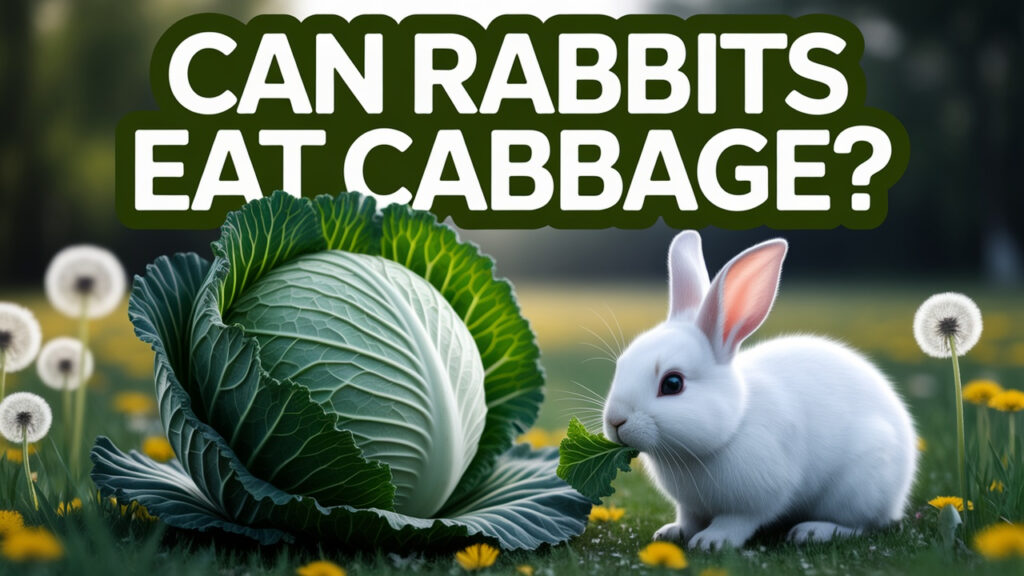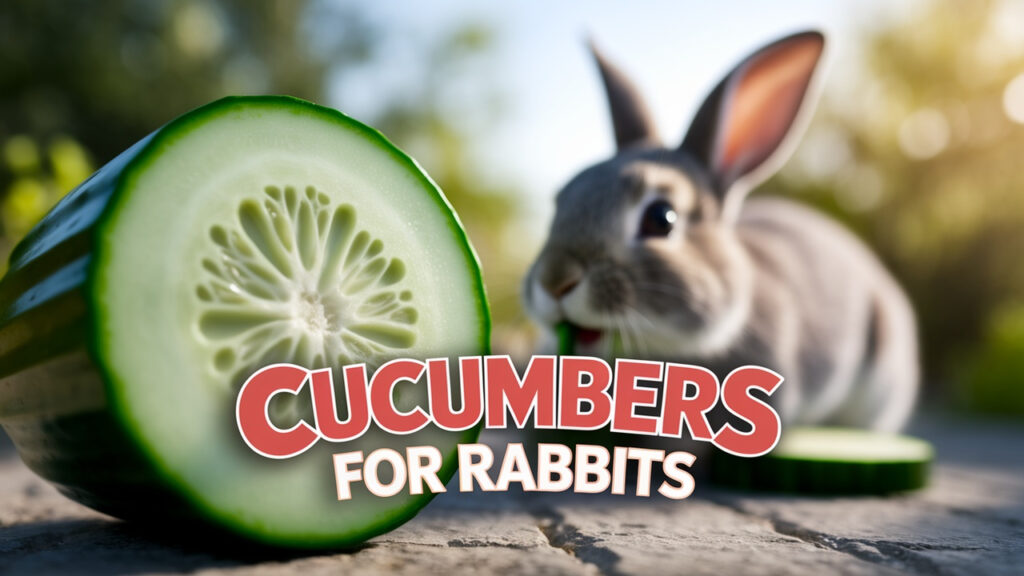When it comes to keeping your rabbit healthy, you may wonder about the various foods you can offer them. As herbivores, rabbits enjoy a diet rich in hay, vegetables, and fruits. However, some fruits are not always safe for rabbits, and you must be cautious when introducing new foods into their diet. One such fruit that often sparks curiosity among pet owners is grapes.
Can rabbits eat grapes safely? This question has become a common concern among rabbit owners, and in this article, we’ll explore whether grapes are a good choice for your furry friend, the potential risks involved, and how to feed grapes to your rabbit healthily.
Can Rabbits Eat Grapes?
Yes, rabbits can eat grapes, but only in moderation. Grapes are high in sugar, which can cause digestive issues, obesity, and other health problems if fed in excess. It’s essential to offer grapes as an occasional treat rather than a regular part of their diet. Remove the seeds before giving them to your rabbit, as they can be harmful.
A small piece of grape once in a while is fine, but it shouldn’t replace their primary diet of hay, fresh vegetables, and clean water. Overfeeding sugary foods can lead to serious health concerns, so moderation is key.

Are Grapes Safe for Rabbits?
Grapes are a popular fruit humans enjoy for their sweet taste and nutritional value. But can rabbits enjoy them as well? The answer is more nuanced. While grapes are not toxic to rabbits, they should only be offered in moderation due to their high sugar content. Too many grapes can lead to digestive issues, weight gain, and other health problems for your rabbit.
Rabbits have sensitive digestive systems; feeding them high-sugar fruits like grapes can upset their balance. It’s important to understand that while grapes are not inherently dangerous, they should not be a staple in your rabbit’s diet. Instead, they should be an occasional treat and always in small portions.
The Nutritional Content of Grapes
Before discussing the safety of grapes for rabbits, it’s essential to look at the nutritional profile of this fruit. Grapes are rich in vitamins, minerals, and antioxidants, such as:
- Vitamin C
- Vitamin K
- Potassium
- Fibre
- Antioxidants like flavonoids and resveratrol
These nutrients provide several health benefits for humans, but rabbits do not require high sugar or specific vitamins, such as Vitamin C, as their primary food source. Unlike guinea pigs, rabbits produce their Vitamin C, so they don’t rely on fruits like grapes for this nutrient.
Though grapes contain beneficial nutrients, the high sugar content—particularly the natural sugars like fructose and glucose—makes them unsuitable for regular consumption by rabbits. Rabbits are more suited to a diet focused on fibrous plants like hay, which supports their digestive health and prevents obesity.
Why Should You Limit Grapes in a Rabbit Diet?
1. High Sugar Content
The primary concern with feeding grapes to rabbits is their high sugar content. Rabbits, when fed too much sugar, are prone to developing obesity and other health issues like diabetes and heart problems. Rabbits’ digestive systems are not designed to handle large quantities of sugar, so giving them too many grapes can upset the balance of their gut bacteria, leading to gastrointestinal issues such as diarrhoea or bloating.
2. Risk of Obesity
Since grapes are high in sugar, offering them too frequently can contribute to weight gain. Rabbits are highly susceptible to obesity if their diet is not well-balanced. Obesity in rabbits can lead to serious health problems, including joint issues, heart disease, and a reduced lifespan. Therefore, limiting foods like grapes, which provide empty calories and no real nutritional value in the quantities rabbits need, is essential.
3. Digestive Issues
Rabbits’ digestive systems are finely tuned to process fibre-rich foods. When rabbits consume too many sugary fruits like grapes, it can disrupt the function of their digestive tract. Excess sugar can cause fermentation in the stomach, leading to an imbalance of gut bacteria. This imbalance may result in diarrhoea or bloating, which can be dangerous for rabbits if left untreated.
4. Kidney Health Risks
Another potential issue with feeding grapes to rabbits is the risk of kidney problems. While there is no direct evidence that grapes cause kidney damage in rabbits, it’s always best to avoid caution. Some animal species, such as dogs, are known to suffer from kidney failure when consuming grapes in large quantities. While the risk to rabbits may not be as severe, limiting the number of grapes you offer is always wise.
How to Safely Feed Grapes to Rabbits
If you’ve decided to treat your rabbit with a grape, there are some essential guidelines. Remember that moderation is key. Here’s how you can safely incorporate grapes into your rabbit’s diet:
1. Serve Grapes in Small Portions
When offering grapes to your rabbit, always start with a small portion. One or two grapes are sufficient for a treat. You can cut the grapes in half to avoid giving your rabbit too much sugar at once. Serving grapes in moderation ensures your rabbit can enjoy them without overloading their digestive system.
2. Wash the Grapes Thoroughly
Before feeding grapes to your rabbit, always wash them thoroughly to remove any pesticides or chemicals that may be harmful. Organic grapes are safer as they tend to have fewer chemicals, but cleaning them well is still important.
3. Monitor Your Rabbit’s Health
After giving your rabbit grapes, observe their behaviour and digestive health. Look for any signs of discomfort, such as bloating, diarrhoea, or lethargy. Stop feeding grapes and consult your vet if you notice any unusual symptoms.
4. Use Grapes as an Occasional Treat
As mentioned earlier, grapes should not be a regular part of your rabbit’s diet. Instead, offer them as an occasional treat, perhaps once every week or two. This way, your rabbit can enjoy the sweetness of the fruit without suffering from the adverse effects of overconsumption.
What Other Fruits Are Safe for Rabbits?
If you want to diversify your rabbit’s diet with other fruits, plenty of options are safer than grapes. Some fruits that are safe for rabbits in moderation include:
- Apples (without seeds)
- Bananas (in small amounts)
- Pears (without seeds)
- Strawberries
- Blueberries
- Watermelon (without seeds)
- Peaches (without the pit)
Always introduce new fruits slowly and observe any reactions from your rabbit. While these fruits are safer than grapes, they should only be offered in small amounts.
Signs of Overfeeding Grapes to Rabbits
If you accidentally overfeed your rabbit grapes, it’s essential to recognize the signs of distress or illness. Some common symptoms include:
- Diarrhea: Loose stools are often one of the first signs that your rabbit has consumed too much sugar.
- Bloating: An overly full or distended belly can indicate that your rabbit’s digestive system struggles to process the sugars.
- Lethargy: Rabbits may become lethargic or less active if they feel unwell after eating grapes.
- Weight Gain: Consistently feeding sugary fruits like grapes can cause weight gain over time, leading to other health complications.
If any of these symptoms occur, stop feeding grapes and consult your veterinarian for advice on how to help your rabbit recover.
FAQs
Are grapes safe for rabbits?
Grapes are not toxic to rabbits but should be fed in moderation due to their high sugar content. Overfeeding can cause digestive issues and obesity.
What fruit can rabbits eat?
Rabbits can eat fruits like apples (without seeds), pears (without seeds), strawberries, blueberries, bananas (in moderation), and watermelon (without seeds), but in small amounts.
What are rabbits not allowed to eat?
Rabbits should not eat lettuce (iceberg), potatoes, onions, garlic, avocado, chocolate, candy, or almonds, as these can harm their health.
Is sugar toxic to rabbits?
Sugar is not directly toxic to rabbits but can cause obesity, digestive problems, and an imbalance in gut bacteria if consumed in excess.
Conclusion
In conclusion, can rabbits eat grapes? Yes, but only in moderation. Grapes can be a delicious and refreshing treat for your rabbit, but due to their high sugar content, they should not be a regular part of their diet. Offering grapes occasionally, as part of a well-rounded diet that includes plenty of hay, vegetables, and limited fruits, is the best approach to keeping your rabbit healthy.
Always be cautious and closely monitor your rabbit’s health after introducing new foods to their diet. Following these guidelines ensures that your rabbit enjoys a balanced diet that supports their long-term health and well-being.




